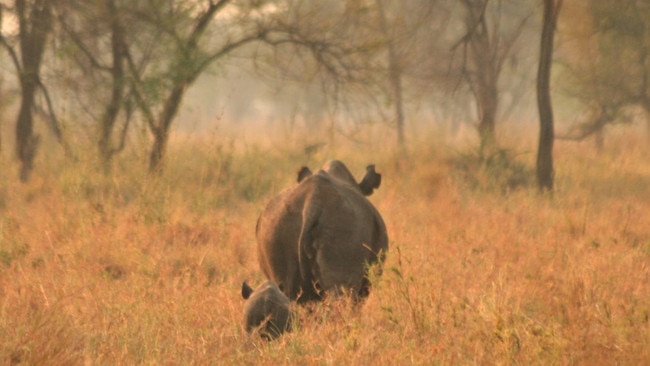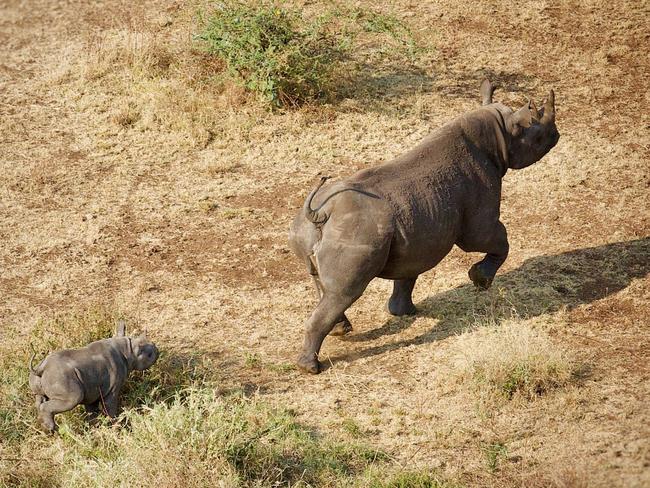Singita and Grumeti Fund celebrate Serengeti’s minor miracle
Conservationists are celebrating the birth of a baby female eastern black rhino in Tanzania’s Serengeti.

This baby female eastern black rhino has not yet been named, but Miracle would seem appropriate. The calf was born in the western Serengeti of Tanzania in June to mother Lindiwe, which means “awaited” in Swahili. Lindiwe had been relocated, as one of a group of nine eastern black rhino, via a 36-hour mission by ground and air late last year from South Africa to a patrolled habitat safer from poachers.
The Grumeti Fund, a non-profit conservation foundation, facilitated the move in conjunction with Tanzania’s Ministry of Natural Resources and Tourism and Tanzania Wildlife Management Authority with the aim of establishing a founder population to boost the greater Serengeti-Mara ecosystem’s rhino numbers.
From a population of about 10,000 eastern black rhino in 1970, the number has shrunk to fewer than 1000 worldwide. The birth of Lindiwe’s calf was the first in the region for decades, according to The Grumeti Fund and its ecotourism partner Singita, which operates 15 safari camps and lodges in Africa, including the Serengeti.

“When the aerial team first spotted the newborn, excitement levels ran high. Then came nerves. Extremely thick vegetation made it easy for [Lindiwe] to hide the calf, but also increased the risk of predation. The calf remained elusive for two weeks after the initial sighting and we feared the worst,” says a Grumeti Fund spokesperson. But advances in technology make it easier to track animals over vast areas, and the wellbeing of Lindiwe, her calf and fellow rhino is now a full-time job for a specialist team that logs locations via EarthRanger, a real-time data visualisation platform. The Singita Grumeti wildlife concession, on the northern edge of the Serengeti National Park, covers more than 141,500ha and uses mobile patrols, a canine unit and air support as part of its monitoring.
Plans to translocate the next group of black rhino this year have been derailed by the COVID-19 pandemic but tentative arrangements are in place for 2021. By then, let’s hope Lindiwe’s much “awaited” and miraculous calf is still thriving, a little beacon of hope for the future of a remarkable species.


To join the conversation, please log in. Don't have an account? Register
Join the conversation, you are commenting as Logout